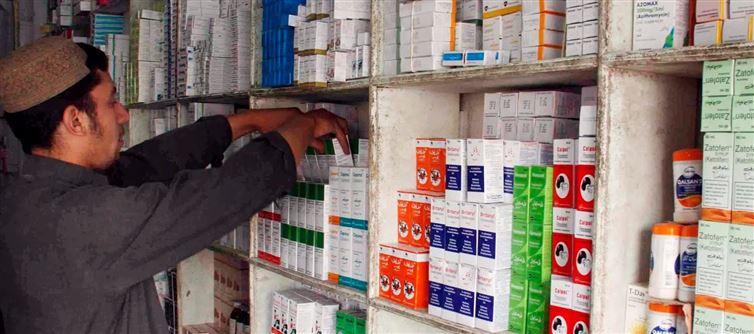
In reaction to India's decision to halt the Indus Water Treaty following the deadly terror incident in Pahalgam, Jammu and Kashmir, Islamabad declared on thursday that all commerce with New delhi will be suspended. The Resistance Front (TRF), a front for the outlawed Lashkar-e-Taiba (LeT), claimed responsibility for the attack, which killed 26 people—mostly tourists—and was the bloodiest to hit the Valley since Pulwama in 2019.
Urgent steps to satisfy pharmaceutical demands were prompted by Pakistan's trade standstill with india, according to Geo News. To safeguard the nation's pharmaceutical supply system, health authorities have triggered backup procedures. Preparations are already in progress, according to the Drug Regulatory Authority of pakistan (DRAP), even though no official notification has been sent out about the ban's effects on the pharmaceutical industry. "We had begun preparing for similar situations after the 2019 crisis. According to a senior DRAP official, "We are now actively looking at alternative avenues to meet our pharmaceutical needs."
Currently, between 30 and 40 percent of Pakistan's pharmaceutical raw materials, such as Active Pharmaceutical Ingredients (APIs) and other cutting-edge medicinal items, come from India. In order to ensure the availability of vital medical supplies like anti-rabies vaccines, anti-snake venom, cancer treatments, monoclonal antibodies, and other vital biological products, DRAP is currently looking for alternate sources from China, Russia, and a number of european nations due to the disruption of this supply chain.
Pharma Crisis Looms
DRAP's readiness has provided some comfort, but if immediate action is not taken, industry insiders and health experts have warned of impending shortages. About 30–40% of Pakistan's pharmaceutical raw materials are imported from India. Speaking on condition of anonymity, a senior official from the Ministry of National health Services, Regulations and Coordination stated, "We also import finished products, most importantly anti-cancer therapies, biological products, vaccines, and sera, especially anti-rabies vaccine and anti-snake venom from India." Even while the government's general trade ban is still in place, the Ministry of health has not yet received an official decree outlining the status of pharmaceutical imports.
The pharmaceutical industry is concerned that a protracted disruption may result in severe shortages of medications that save lives. A thriving illegal market for medications imported into pakistan through Afghanistan, Iran, Dubai, and the eastern border further complicates the problem. According to the research, these routes contribute to filling supply shortages but do not provide a guarantee of continuous availability or quality.
Traders appeal for sector exemption
A group of leaders from the pharmaceutical business traveled to Islamabad on thursday to urge authorities to exempt the industry from the trade embargo to prevent a crisis. "To discuss the suspension of trade relations, we met with representatives from the Ministry of Commerce and DRAP. Tauqeer-ul-Haq, Chairman of the pakistan Pharmaceutical Manufacturers Association (PPMA), stated, "We urged them to exempt the pharmaceutical sector from the ban, as there are many life-saving products whose raw materials come exclusively from India."
To protect public health, the delegation also appealed to the Special Investment Facilitation Council (SIFC), stating that imports connected to pharmaceuticals and health care must be protected.
However, other analysts see the crisis as a possible reform trigger. Senior public health specialist Zafar Iqbal stated, "This crisis could be a turning point for pakistan," highlighting the necessity of sustained investment in local manufacture of biological goods, vaccines, and APIs.




 click and follow Indiaherald WhatsApp channel
click and follow Indiaherald WhatsApp channel